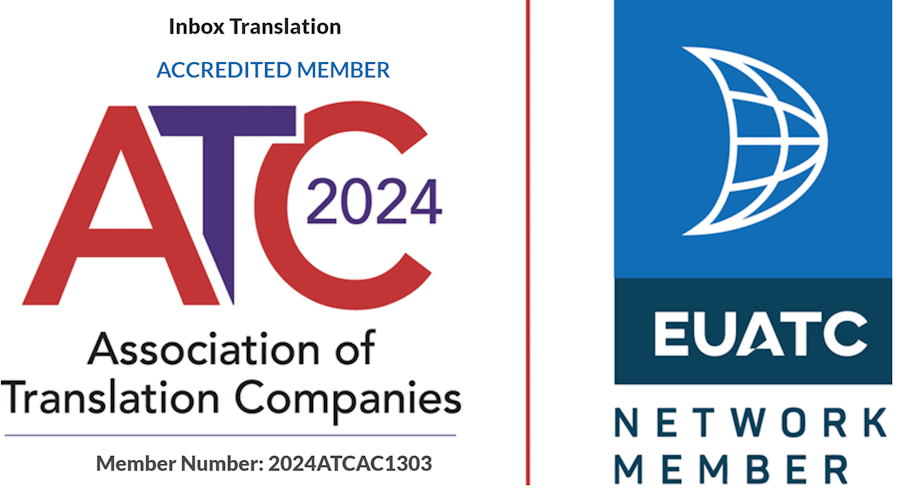Interpreting services, accredited agency
Professional interpreters, native in the language they interpret into, specialists in your sector







Whether it’s a business meeting, a conference or legal matters, we can help. We offer interpreting services throughout the UK but also abroad.
We choose our interpreters with the utmost care, making sure they have the necessary qualifications, skills and experience. Being bilingual is not enough. Being bilingual is a requisite, not a qualification. Interpreting is demanding and requires a high level of accuracy, a good memory and excellent listening skills.
Interpreter? Translator? What is the difference?
In a nutshell: interpreters work with the spoken word (think of meetings and conferences), while translators work with the written word (books, ads, contracts).
To get the most of our interpreting services, here's the info we need from you:
Accreditations

Who works on your project?
Each project is unique. A conference where simultaneous interpreting is required is not the same as an informal meeting between two potential business partners. A legal hearing is very different from a fashion event broadcast live on TV. We can help with all of these, but the people chosen for each project need to have different skills and training. However, all our interpreters have in common a few things:
Languages we can help with
We work with various language combinations. Here are some of our most popular languages:
- Portuguese
- Punjabi
- Romanian
- Russian
- Serbian
- Sinhala
- Slovak
- Slovene
- Somali
- Spanish
- Swahili
- Swedish
- Tamil
- Thai
- Turkish
- Ukrainian
- Urdu
- Vietnamese
- Welsh
Simultaneous, consecutive, whispered, liaison interpreting - What is the difference?
Have a look at the different types of interpreting available and if you still are not sure what you need, we are a phone call or email away.

Simultaneous interpreting
As the name suggests, the interpreter simultaneously interprets what the speaker is saying while using headphones to listen to the speech.
Where?
Most frequently used for:Advantages
Disadvantages

Consecutive interpreting
The interpreter takes notes while listening to the speaker deliver their speech (or parts of it) and then interprets it to the listeners.
Where?
Most frequently used for:Advantages
Disadvantages

Whispered interpreting
The interpreter stays close to the listener and whispers the interpretation of what the speaker is saying (a form of simultaneous interpreting).
Where?
Most frequently used for:Advantages
Disadvantage

Liaison interpreting
Also called short consecutive, in this type of interpreting a few sentences are translated at a time.
Where?
Most frequently used for:Advantages
Disadvantage

Telephone interpreting
An alternative when face-to-face interpreting is not possible. Name is pretty self-explanatory.
Where?
Most frequently used for:Advantages
Disadvantage
How much does it cost?
The different types of interpreting services have different rates, depending on a number of factors:
1Type of interpreting
For example, simultaneous interpreting is a very specialised and highly demanding type of interpreting and at least two interpreters are required, as they work in turns (around 30 minutes each). This means the fees will be higher than for liaison interpreting for example.
2Language combination
As in the case of translations, the language combination has an influence on price. Interpreting between English and Spanish is less expensive than between English and Twi. The reason is that a language such as Twi is a lot more rare than Spanish and therefore there are fewer specialised interpreters for this language combination.
3Duration
This is self-explanatory. The longer you need the interpreter(s) for, the higher the fees.
4Location
While we do our best to find interpreters as close as possible to the venue of the event, sometimes this is not possible. Travel expenses incurred by the interpreters will be added to the fees we charge for the interpreting. You will be informed about these costs in advance; there will be no surprises at the end.
5Number of interpreters
As mentioned above, sometimes more than one interpreter will be needed and fees will be higher. If you are not sure about how many interpreters are needed, don’t worry. We can advise, so just give us a call or get in touch.
6Equipment
In certain situations (e.g. conferences) where simultaneous interpreting is required, special equipment will be needed (interpreting booths). If the venue is already equipped with those or you are happy to make your own arrangements, all you pay for is the interpreting. But if you’d like us to help you with this, we will include the costs in the quotation.
7Notice
While we do understand that there are instances where advance notice is not possible (your client has just been taken into custody and he does not speak English), for most events you should give us advance notice. There are several reasons for that:
Booking an interpreter
It is always advisable to book your interpreter in advance; not only will they be able to be better prepared, but you make sure one will be available for your event. Our interpreters can be booked for a full-day only. In exceptional circumstances, half-days may be agreed on.
Testimonials
Our clients






